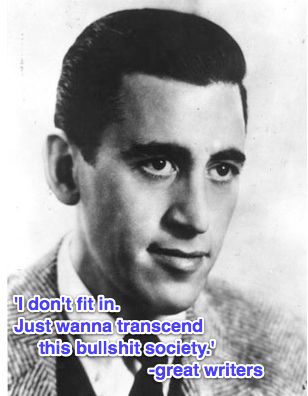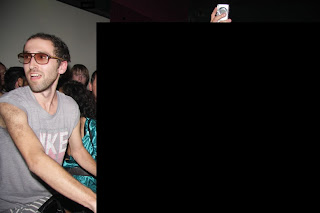So, say I was in a position to read a manuscript about a certain iconic circus ringleader, the genesis of the entertainment industry, and the death of natural philosophy.
Hellz yeah, you say? Well, yeah, it probably would be pretty tight, if I were doing that.
But.
Let's also say the writer is a graduate of a certain MFA program that likes things that involve indirect discourse applied to previously marginalized members of society (OK, that's every MFA program). This is always intensely readable, and sometimes, hella cheap.
(Note: The writer may not, in fact, be good enough to subtly switch to this mode, and instead may confuse my tired eyes by simply starting the first chapter focusing on said marginalized society-member in good old first person, in which case this critique is, like, total overkill. But since this situation is totally hypothetical, let's roll with it.)
Now people who have taken a modern lit class get to eat a sandwich while I give a history lesson to the other .2 of you:
Indirect discourse is this highly useful narration technique where you have the power of the omniscient narrator to say whatever, but can interweave the thoughts of the characters without attribution. Basically, it's the authorial persona speaking, filtered through the voice, vocabulary, and viewpoint of the main character of the moment. You get the unique worldview of first-person, with an infinite number of possible layers of distance from that view.
Exercise!
Blogger: The Independent Film
[John wakes up, looks at his feet, closes his eyes.]
Blogger: A Memoir
Morning crashed through the window again. I opened my eyes, saw some feet, saw there were only two of them, got sad, closed my eyes again.
Blogger: A Pulitzer-hopeful Novel
At 8:07 a.m., six eyes on 101 W Carraway shot open, six feet twitched---two of these were in the corner room of Apt B. A blink and a throb. Three times, three times shot down. John closed his eyes. The nails would be all be trimmed in twenty minutes.
It's the "three times" that makes this indirect discourse, and therefore important writing of the modern era. But when did this become the No. 1 marker of literature?
(That is a question I am totally unqualified to answer. At some point we swung from fully-formed narrative personas, often with their own introductions to the story, to this.
In my unsupported view, this was a way to bring in the dramatic monologue of the theater (recognizably high art) to the novel (with its middle-class distaste for anything as artificial as a monologue). By Mrs. Dalloway, we were following twelve different characters' voices at once, frequencies jiggered on the omniscient narrator's radio.
Because it is easier to say whatever you want about opaque writing, lit crit couldn't be more pleased about this.)
To bring this back, finally, contemporary readers take indirect discourse as simply the way a story is told.
Any writing set in "the past" likes to exploit this by engaging the reader with this modern, comforting narrative voice, but then employing distance (third person narration without intrusion into character's voices or thoughts) when the author doesn't want you to identify with the characters, and it feels all alien and not our time period and stuff.
Indirect discourse is then used to bring to the emotional spotlight the marginalized, often women. But I think this can backfire, reinforcing people's notions about gender roles in the past: Men do things; women feel things.
So when I read about a 19th century aristocratic taxidermist upholding the patriarchy for 10 chapters with no development, and then am thrust into the deeply nuanced thoughts of an nine-foot-tall woman, I feel cheated.
But in this thought experiment I am reading this manuscript with the world (or about 12,000 of you) in mind. So the question is, do you?




























